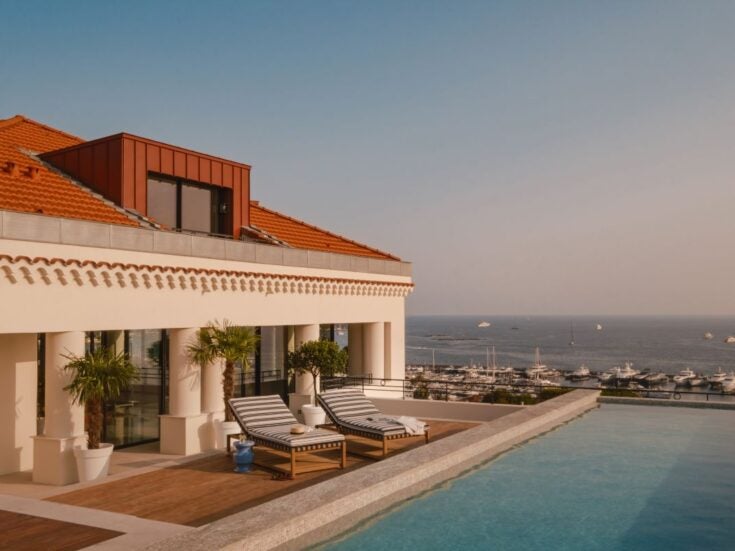Ross Clark explores a world of opportunity for second, third or fourth home buyers in less-than-traditional or offbeat locations
Just how long does it take for a country to go from being a war zone to a desirable hang-out for the world’s wealthy? In the case of Montenegro, eight years. In 1999 the Balkan state, then part of Serbia, was on the wrong end of a Nato bombing campaign.
Since achieving independence from Serbia last year, on the other hand, the only invasion has come from the more intrepid of the world’s holiday-home hunters. Land prices in waterfront locations are rising fast, while at Sveti Stefani, the first £1 million villas are being built.
As for Serbia itself, for so many years a no-go area for tourists, one visitor recently found herself in a café with Karl Lagerfeld on one side and Axl Rose on the other. Until fairly recently, finding a second home was a fairly limited activity.
You read Peter Mayle’s A Year in Provence, thought ‘wouldn’t it be nice to live there, too’, and headed for the South of France. There was Spain, too, Florida, the Caribbean and one or two other popular destinations. As for the rest of the world, that was fine for backpackers, but for investing in the property market? You had to be mad.
Yet the world has opened to property hunters to such an extent that, with the exception of Iraq and Afghanistan, there is virtually nowhere left on earth which is not being talked up as the next property hotspot.
In fact, if you can visit it on Google Earth, the chances are that you can buy a home there. Kenya? Ronnie Wood of the Rolling Stones is already looking for a home there. Uganda, for so long the private domain of the world’s bogey dictator, Idi Amin? Charles Weston Baker of Savills recently sold an island on Lake Victoria for £150,000.
As for Morocco, it has become almost too commonplace for the adventurous buyers. The attention now is on the Cape Verde Islands, 450 miles off the coast of Senegal – when property investors have a little more insight into the desires of Western visitors than did the – probably apocryphal – local tourist chief reputed to have dismissed demands for greater tourist facilities with the words: ‘Why would they want to come here anyway – when all we have is sun and sand?’
Maybe he had a point. For some investors, sun, sea and sand is becoming a little passé. There has been a noticeable trend in recent years towards cooler parts of the world. One of them is Newfoundland where William Thompson of New Found Properties has been selling what he calls ‘chalets’ at the Humber Valley Resort to Europeans (anyone who remembers holidays at seaside chalets in Britain would call them substantial homes).
Thanks to the curvature of the earth – which is not obvious on all maps – Canada’s easternmost province is only five hours by plane from London. ‘The attraction is that it is a year-round destination,’ he says, ‘with skiing in winter and a full range of summer activities’.
One of Charles Weston Baker’s latest sales is an island in Finland, sold on a 35-year lease for £125,000.It is certainly not for those who appreciate balmy winters. ‘You sail to it in summer and walk to it in winter,’ he says. No-one should worry that they missed out on that one: there are another 179,583 islands in Finland, set in 187,888 lakes.
That statistic rather puts into perspective the boom in worldwide property: the market for prime holiday homes used to operate on the grounds of scarcity; open up the entire world, on the other hand, and suddenly you wonder why you really need to pay millions for a beachfront lot in the Hamptons.
Canada and other western democracies excepted, buying in emerging property markets can be a bit of a leap in the dark – as one buyer in Montenegro discovered when his lawyers discovered that the piece of land which he was trying to buy appeared to have 14 different owners – and it wasn’t even officially a timeshare.
Just because a country has gained a plush new international airport doesn’t mean it has suddenly turned into a Western democracy, of course. Revolutions can always happen – and your holiday home swept away with it. But for the super-wealthy, it matters rather less.When you have four or five homes, as many do these days, you can always afford to lose one or two.
Making money on a home isn’t everything; though buyers in Latvia, who helped pushed up prices by 39.2 per cent last year, according to Knight Frank’s international property index, won’t be complaining. Second on the index, incidentally, was Bulgaria on 19 per cent and Denmark on 17.8 per cent.
Bubbling under, as they say, are Mauritius, Uruguay and the Dominican Republic. There are just a few parts of the world which have yet to show up on the radar screen for holiday home buyers. So far there isn’t a lot of interest in Haiti, the former French colony which has become one of the most dangerous countries in the world. Nicaragua will have to wait for another day.
And as for Russia, there isn’t an obvious amount of interest among Western buyers yet. But you just wait – until Peter Mayle writes A Year in Siberia.






